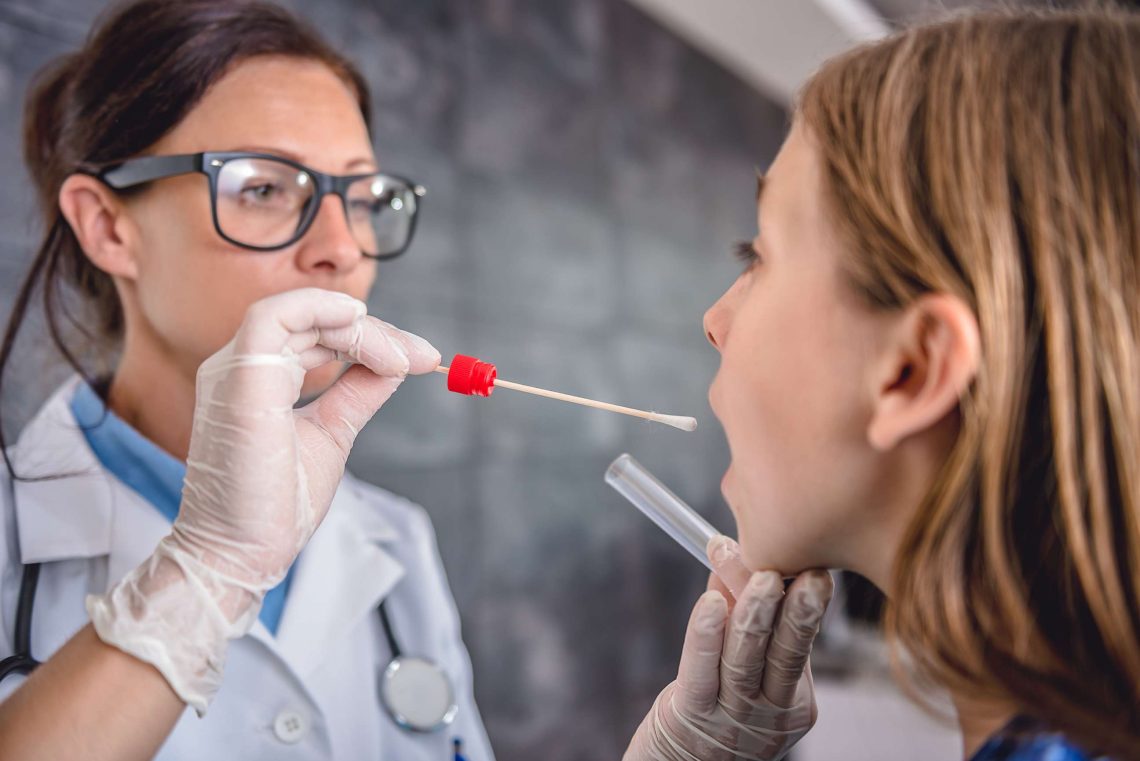Introduction
A sore throat is often shrugged off as a minor inconvenience. But when the culprit is Group A Streptococcus (GAS)—the bacteria responsible for strep throat—it can lead to serious consequences if not properly treated. Among these is rheumatic fever, a rare but potentially life-threatening inflammatory disease that can damage the heart, joints, brain, and skin.
Antibiotics are the cornerstone of strep throat treatment. While they help reduce discomfort and contagiousness, their most important role is preventing complications like rheumatic fever. This article explores why timely antibiotic treatment for strep throat is crucial, how it works, and what happens if it’s delayed or skipped.
Understanding Strep Throat and Its Risks
What Is Strep Throat?
Strep throat is a bacterial infection that inflames the throat and tonsils. It spreads through respiratory droplets and is most common in:
- Children aged 5 to 15
- People in close-contact environments (schools, dorms)
Common Symptoms Include:
- Sudden sore throat and painful swallowing
- Fever over 101°F (38.3°C)
- Red, swollen tonsils (often with white patches)
- Tender lymph nodes
- No cough or runny nose
Why Are Antibiotics Prescribed for Strep Throat?
1. To Eliminate the Bacteria
Antibiotics kill the Streptococcus pyogenes bacteria, causing the infection, allowing the body to heal.
2. To Reduce Symptoms Faster
Antibiotics can shorten the duration of symptoms by 1–2 days, especially when started early.
3. To Prevent the Spread
Strep is highly contagious. After 24 hours of antibiotics, a person is usually no longer infectious.
4. To Prevent Complications
This is the most critical reason. Left untreated, strep throat can lead to:
A. Rheumatic Fever
- An inflammatory disease that can develop 2–4 weeks after untreated strep.
- It can cause:
- Permanent heart valve damage (rheumatic heart disease)
- Painful, swollen joints
- Involuntary movements (Sydenham’s chorea)
- Skin rashes
- Most common in children and teens aged 5–15.
- Still a major health issue in low- and middle-income countries.
B. Post-Streptococcal Glomerulonephritis
- A kidney inflammation that can follow strep.
- Less preventable with antibiotics than rheumatic fever, but still serious.
C. Peritonsillar Abscess
- A deep throat infection near the tonsils.
Which Antibiotics Are Used?
First-Line Treatment
- Penicillin or Amoxicillin:
- 10-day oral course or a one-time penicillin G injection.
- Safe, effective, and inexpensive.
Penicillin Allergy Options
- Cephalexin, Clindamycin, Azithromycin, or Erythromycin
Treatment Duration
- Full 10-day course is recommended for oral antibiotics to ensure complete eradication and complication prevention.
Why Completing the Full Antibiotic Course Matters
Even if symptoms improve after 2–3 days, stopping early can:
- Leave some bacteria alive.
- Increase the risk of recurrence or complications like rheumatic fever.
- Promote antibiotic resistance.
What Happens If Strep Throat Isn’t Treated?
While strep throat sometimes resolves on its own, untreated cases risk:
| Potential Complication | Risk Without Treatment |
| Rheumatic fever | Higher risk after 2–4 weeks |
| Kidney inflammation | Possible after 1–3 weeks |
| Otitis media (ear infection) | Common in children |
| Sinusitis | Especially in recurring strep |
| Abscess near tonsils | May require surgical drainage |
Who’s Most at Risk for Rheumatic Fever?
- Children and teens aged 5–15
- Individuals with poor access to medical care
- People in areas with overcrowded housing or limited sanitation
- Those with a personal or family history of rheumatic fever
Can Rheumatic Fever Be Treated?
Yes—but prevention is far more effective than treatment. Once rheumatic fever occurs:
- Anti-inflammatory treatment (like aspirin or steroids) may be used.
- Long-term antibiotics (monthly penicillin injections) are needed to prevent repeat infections.
- Heart damage, once done, may be permanent and require valve surgery later in life.
Myths About Strep and Antibiotics
“It’s just a sore throat—I don’t need antibiotics.”
Strep throat is not just a typical sore throat. If confirmed, it must be treated to prevent complications.
“If I feel better, I can stop the antibiotics.”
Symptoms improve quickly, but the bacteria may still be present. Stopping early risks relapse and complications.
“Antibiotics always cause side effects.”
Most people tolerate penicillin well. Serious reactions are rare, and the benefits outweigh the risks in confirmed strep.
When to See a Doctor
Seek medical care if you or your child has:
- Sudden sore throat with fever
- Painful swallowing
- Red or white patches on the tonsils
- Swollen lymph nodes in the neck
- No runny nose or cough (suggests bacterial, not viral)
A rapid strep test or throat culture will confirm if antibiotics are needed.
Conclusion
Strep throat is a common infection—but one with serious potential consequences if left untreated. Antibiotics play a vital role not just in easing symptoms, but more importantly, in preventing rheumatic fever and other complications. Completing the full course of treatment, even when you feel better, is essential for your health and the health of those around you.
If you or your child has symptoms of strep throat, don’t take chances—get tested and treated promptly. It’s a small step that can prevent long-term damage.
FAQs:
Why do I need antibiotics for strep throat?
To eliminate the bacteria, relieve symptoms faster, prevent spreading it to others, and avoid serious complications like rheumatic fever.
What happens if strep throat is left untreated?
Untreated strep can lead to complications such as rheumatic fever, kidney inflammation, and abscesses near the tonsils.
How soon after starting antibiotics am I no longer contagious?
Most people are no longer contagious 24 hours after starting antibiotics.
Do I still need to finish the antibiotics if I feel better?
Yes, completing the full course is essential to fully eliminate the infection and prevent complications.
Can rheumatic fever be reversed once it happens?
No, damage—especially to the heart—can be permanent. That’s why prevention with antibiotics is critical.






